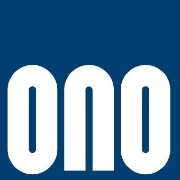$278 million Imfinzi patent infringement lawsuit against AstraZeneca
- IP News Bulletin
- Jul 29, 2022
- 2 min read
Ono Pharmaceutical, a Japanese pharmaceutical company, is suing AstraZeneca for allegedly violating its PD-L1 patents with the popular lung cancer medicine Imfinzi.
It's a tactic that has previously resulted in payments from Merck & Co. and Roche, and this time, Ono is asking for much more in repaid royalties.
Ono filed a case against AZ at the Tokyo District Court on Monday, asking for an injunction and 32 billion Japanese yen (about $278 million) in damages for Imfinzi's claimed infringement of a patent owned by Ono.
Ono has stated that it won't seek a sales injunction because AZ's medication is essential for cancer patients provided the British pharmaceutical company agrees to pay "an suitable payment including royalties even outside the proceedings."
According to a note sent to investors on Monday by Jefferies analysts, Ono is asking for around 2.6 percent of the $10.7 billion in total revenues Imfinzi generated through the end of 2021. The Jefferies team noted that this is significantly more than what Ono received from Roche and Merck over comparable infringement claims related to Tecentriq and Keytruda, respectively.
Both businesses agreed to pay continuing royalties, which the Jefferies team estimated to be between 1.5 percent and 1.8 percent of sales, and made one-time payments to Ono for prior unpaid royalties. Comparing the possible AZ payout to Ono's earnings from Keytruda and Tecentriq, it "looks a bit steep."
The Jefferies team stated that it is uncertain if Ono will prevail in court or how long any future royalties payments will last.
According to the analysts, Ono could increase its top line by 6 billion yen ($52 million) and 7 billion yen ($60.8 million) if it received just 1.7 percent royalties on Imfinzi sales in fiscal years 2023 and 2024. Profits in both years would increase by an additional 4 to 5 percent as a result.
In a release, Ono stated that "we view intellectual property as a very significant managerial asset." The decision to take necessary action against conduct that violate our intellectual property rights led to the filing of this particular complaint.
A spokeswoman for the firm stated, "AstraZeneca does not comment on pending lawsuits."
Beyond its agreements with Merck, Roche, and AZ in the field of oncology, Ono also collaborated on the development of the bestselling cancer medication Opdivo for Bristol-Myers Squibb.
The Nobel laureate who contributed to the drug's development wanted a larger cut of the profits a number of years ago. Tasuku Honjo, Ph.D., a Japanese immunologist and Nobel Prize winner for discovering the immune cell protein PD-1, requested a contract renegotiation with Ono in 2019. He argued that his 1 percent share of the company's sales and licencing revenue from Opdivo didn't accurately reflect his contribution to the development of the medication. According to Honjo's attorney at the time, a 5–10% share would have been "a realistic level."











Comments